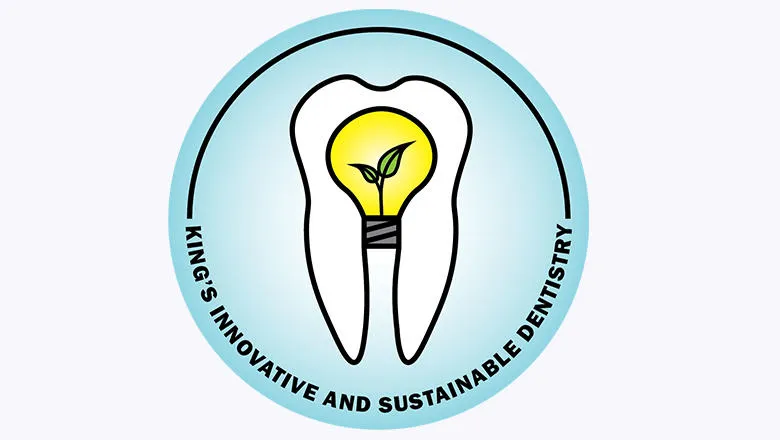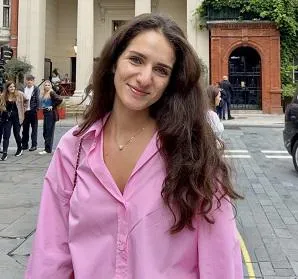Our vision is to bring people together who share a passion for innovation and the emerging field of ‘green’ dentistry and increase acceptance of integrating technology and sustainable strategies into routine practice.
KISD Society founder and President, Diana Dourou
01 November 2021
King's Innovative and Sustainable Dentistry Society – evolving dentistry for a more sustainable future
The Faculty of Dentistry, Oral & Craniofacial Sciences has a new student society, the Innovative and Sustainable Dentistry Society.

The Faculty of Dentistry, Oral & Craniofacial Sciences has a new student society, and one that has arrived with impeccable timing. With the COP26 Conference launching this week, we caught up with the King’s Innovative and Sustainable Dentistry (KISD) Society founder and President Diana Dourou to find out her views on sustainable dentistry, and what students can do to ensure a more sustainable future for the profession.
The King’s Innovative and Sustainable Dentistry Society was formed mid 2021 by Diana, with support from fellow King’s BDS4 students Marianne Crombie and Luisa Gerstner. The Society aims to create a community where students can immerse themselves into the evolution of dentistry. Diana believes that sustainable and innovative practice are key determinants of this evolution.

KISD sees dentistry as a profession, key in contributing towards the goals that are being discussed at the COP26 conference this week: “Considering the multisectoral nature of the dental profession, action can be taken amongst dental professionals and regulatory bodies, both at population and policy level, to contribute towards meeting the 2030 emissions reductions targets.”
Diana believes that the environmental impact of the dental profession is primarily linked to the supply chain of commonly used materials and equipment and corresponding waste generation. Critically evaluating procedures, materials and equipment with a high carbon footprint is crucial in identifying ways to minimise the environmental burden of the profession.
As dental students, the members of KISD agree that by supporting strategies that have been brought to the forefront by representative bodies within the dental community, they can assist in implementing “greener” initiatives at their respective universities, promoting a culture of sustainable practice.
Diana explains: “Students are at the best position to use online green toolkits to supplement their learning and deliver oral healthcare in a more sustainable way on clinics.”
Moreover, students can engage in sustainable strategies regarding clinical usage and waste management.
“Being more mindful of the volume of waste generated from individual clinical procedures, not only from the materials used, but also from the associated packaging, can lead to practicing dentistry in a more conservative manner.”
With students in training representing the future generation of dentists, the Society believes sustainable dental principles need to be emphasised, so that students can embed such principles in their future professional lives.
“Introducing sustainable dentistry into dental curricula has the potential to help students critically appraise dental interventions with high carbon footprint and increase awareness of the environmental impact of the profession.”
